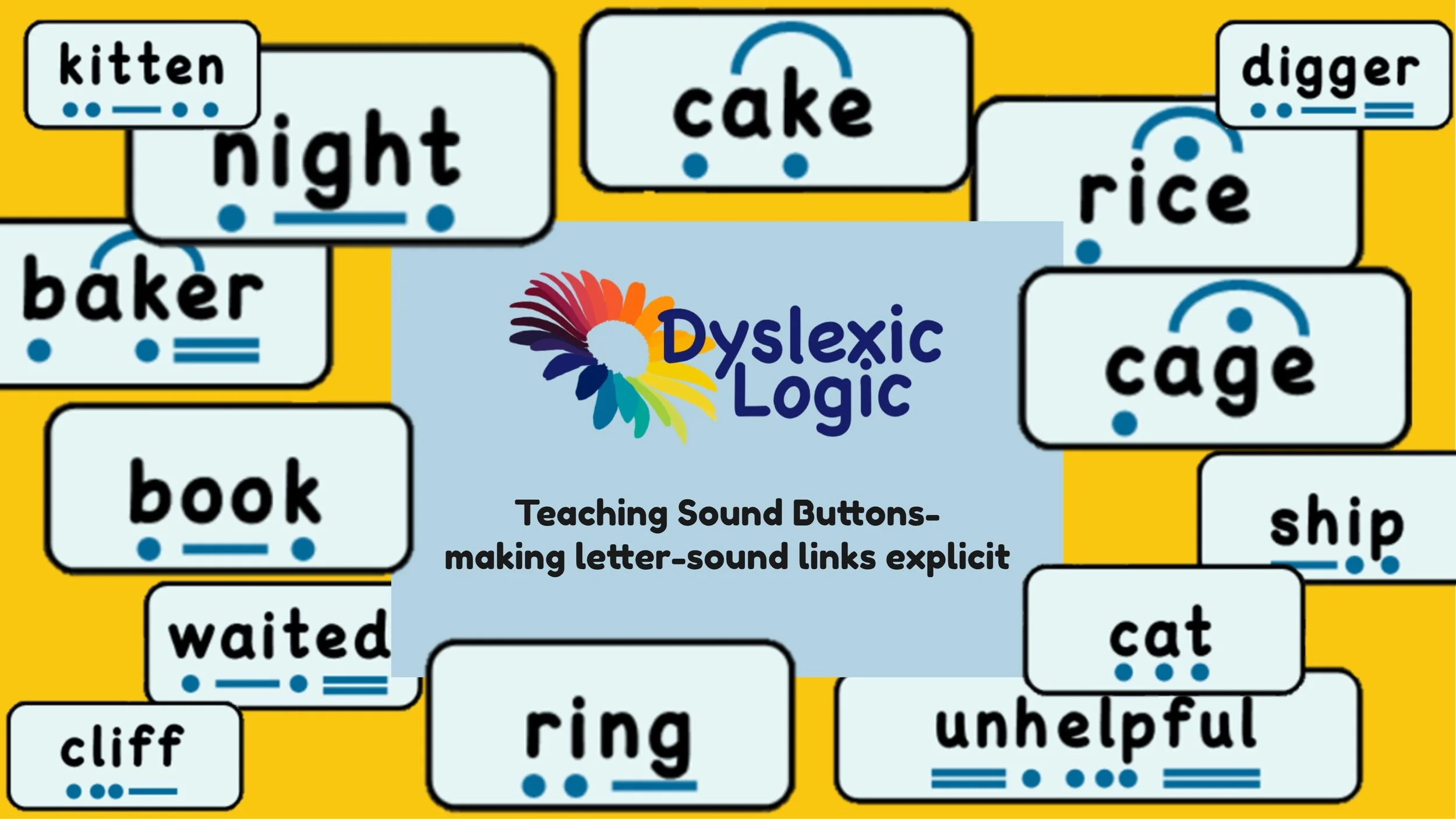Why Sound Buttons are Magic
/I have recently had a breakthrough with a new student who hadn’t been able to progress past 1-1 grapheme-phoneme correspondences for years. He couldn’t quite get past the idea that one letter represented one sound. The key to the breakthrough was sound buttons. Suddenly we had a shared visual language to explore the relationships between letters and sounds. In the space of a few weeks, he is now able to read words like ‘toffee’, ‘bleach’ and ‘rainbow’.
Read More




